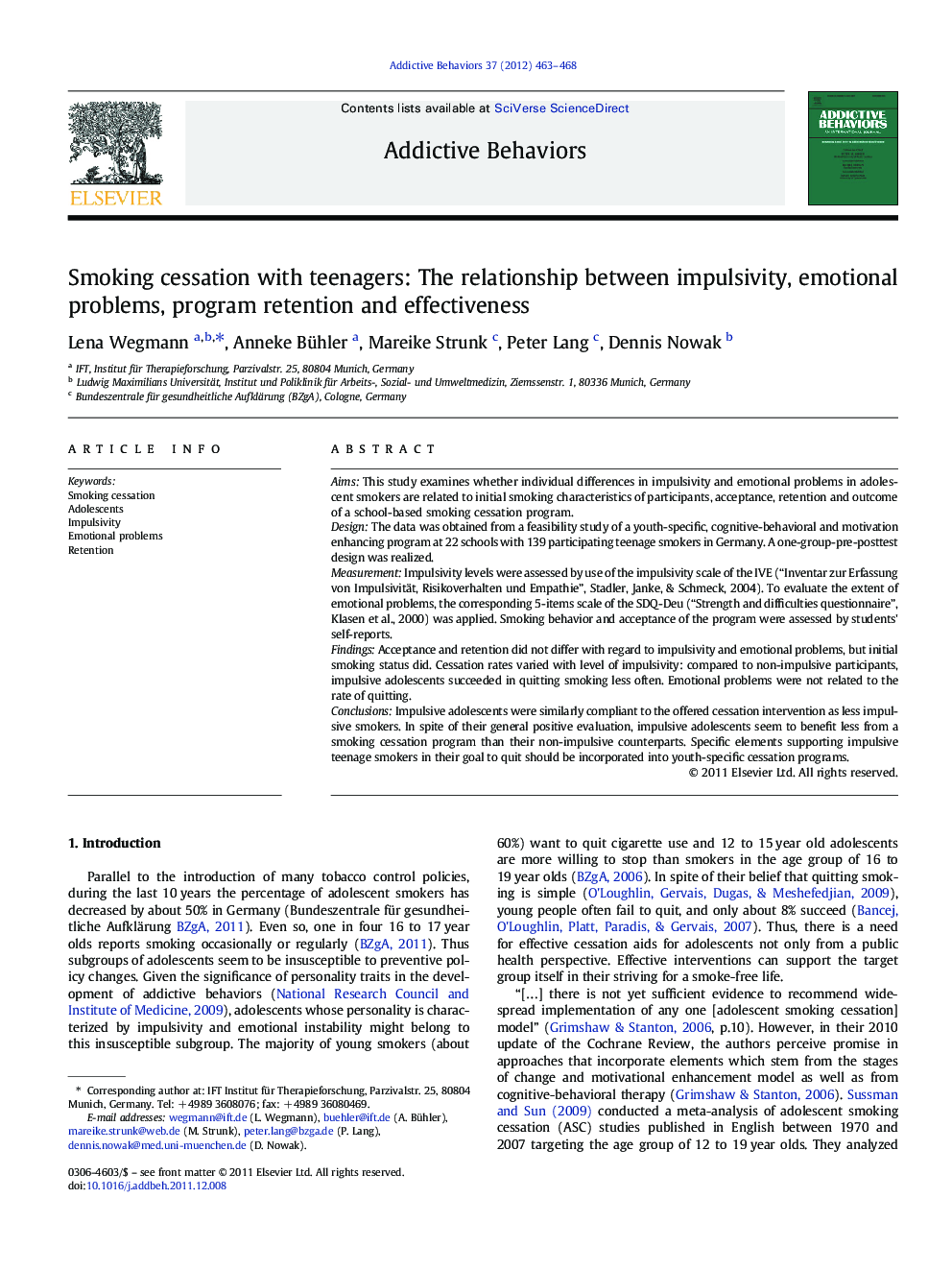| کد مقاله | کد نشریه | سال انتشار | مقاله انگلیسی | نسخه تمام متن |
|---|---|---|---|---|
| 899141 | 915363 | 2012 | 6 صفحه PDF | دانلود رایگان |

AimsThis study examines whether individual differences in impulsivity and emotional problems in adolescent smokers are related to initial smoking characteristics of participants, acceptance, retention and outcome of a school-based smoking cessation program.DesignThe data was obtained from a feasibility study of a youth-specific, cognitive-behavioral and motivation enhancing program at 22 schools with 139 participating teenage smokers in Germany. A one-group-pre-posttest design was realized.MeasurementImpulsivity levels were assessed by use of the impulsivity scale of the IVE (“Inventar zur Erfassung von Impulsivität, Risikoverhalten und Empathie”, Stadler, Janke, & Schmeck, 2004). To evaluate the extent of emotional problems, the corresponding 5-items scale of the SDQ-Deu (“Strength and difficulties questionnaire”, Klasen et al., 2000) was applied. Smoking behavior and acceptance of the program were assessed by students' self-reports.FindingsAcceptance and retention did not differ with regard to impulsivity and emotional problems, but initial smoking status did. Cessation rates varied with level of impulsivity: compared to non-impulsive participants, impulsive adolescents succeeded in quitting smoking less often. Emotional problems were not related to the rate of quitting.ConclusionsImpulsive adolescents were similarly compliant to the offered cessation intervention as less impulsive smokers. In spite of their general positive evaluation, impulsive adolescents seem to benefit less from a smoking cessation program than their non-impulsive counterparts. Specific elements supporting impulsive teenage smokers in their goal to quit should be incorporated into youth-specific cessation programs.
► More impulsive adolescent smokers are as compliant to a cessation program as other participants.
► Cessation is less successful with more impulsive smokers.
► Acceptance, retention and quit rate is independent of participants' emotional problems levels.
► Smoking intensity varies with pronounced impulsivity and emotional problems among participants.
Journal: Addictive Behaviors - Volume 37, Issue 4, April 2012, Pages 463–468